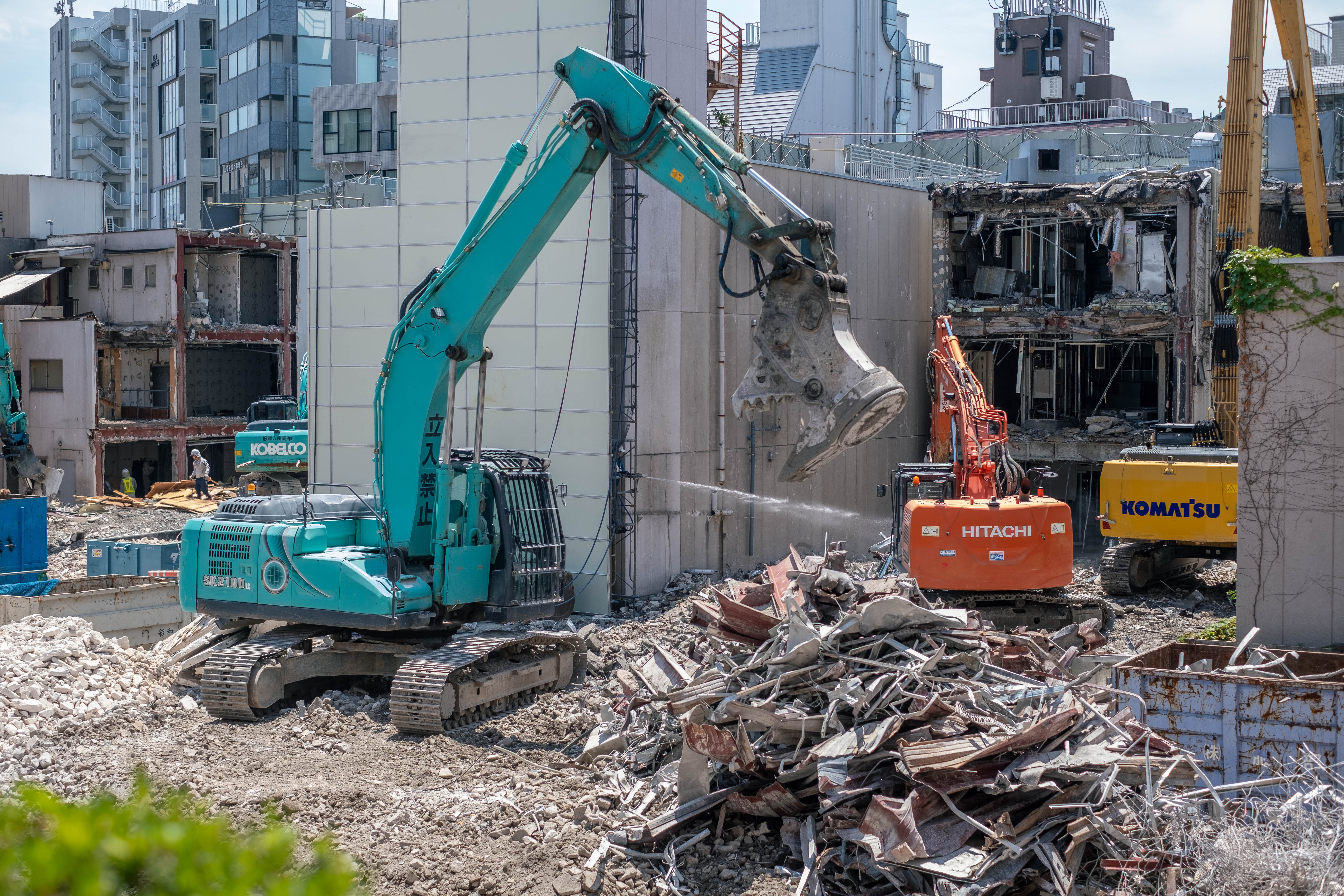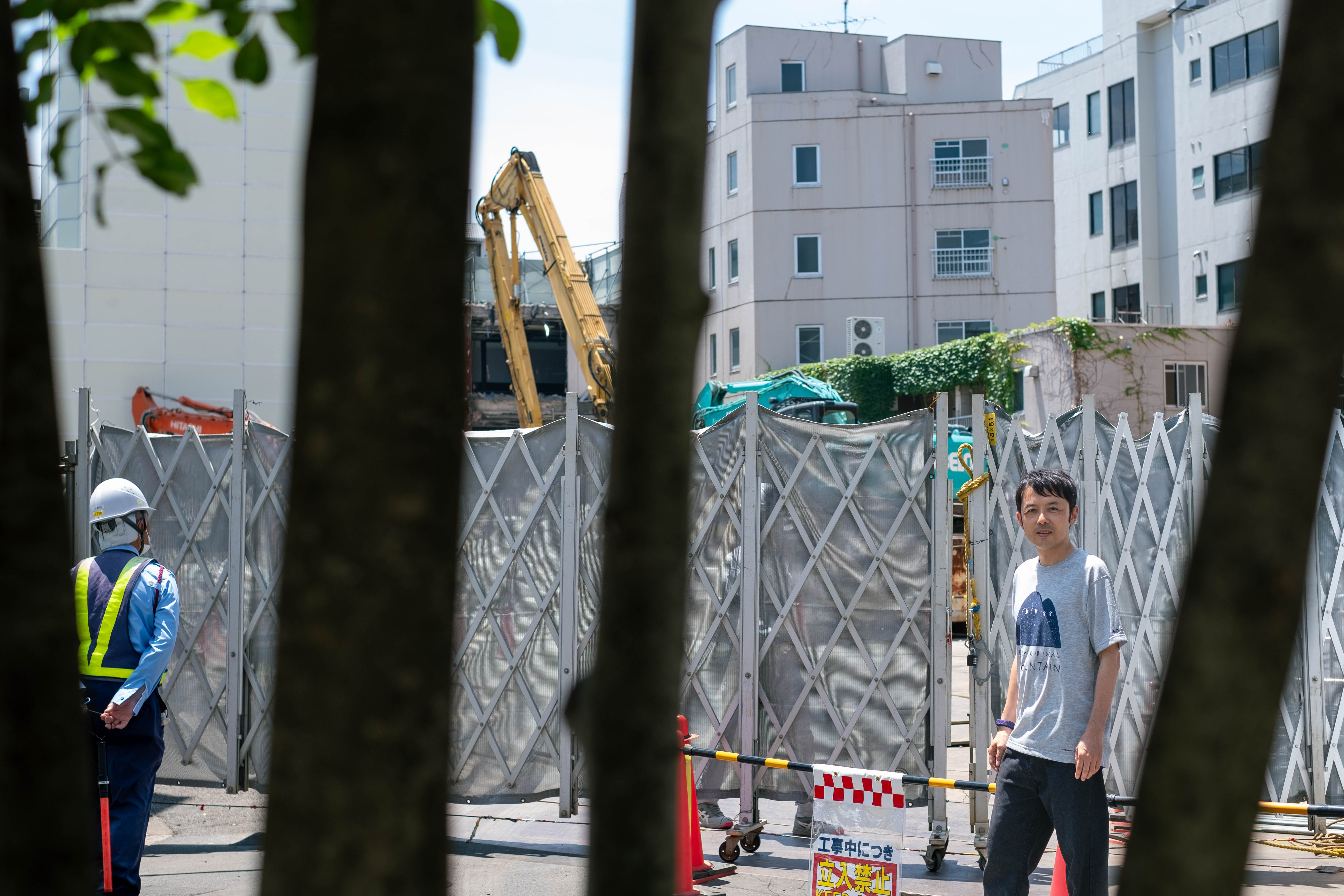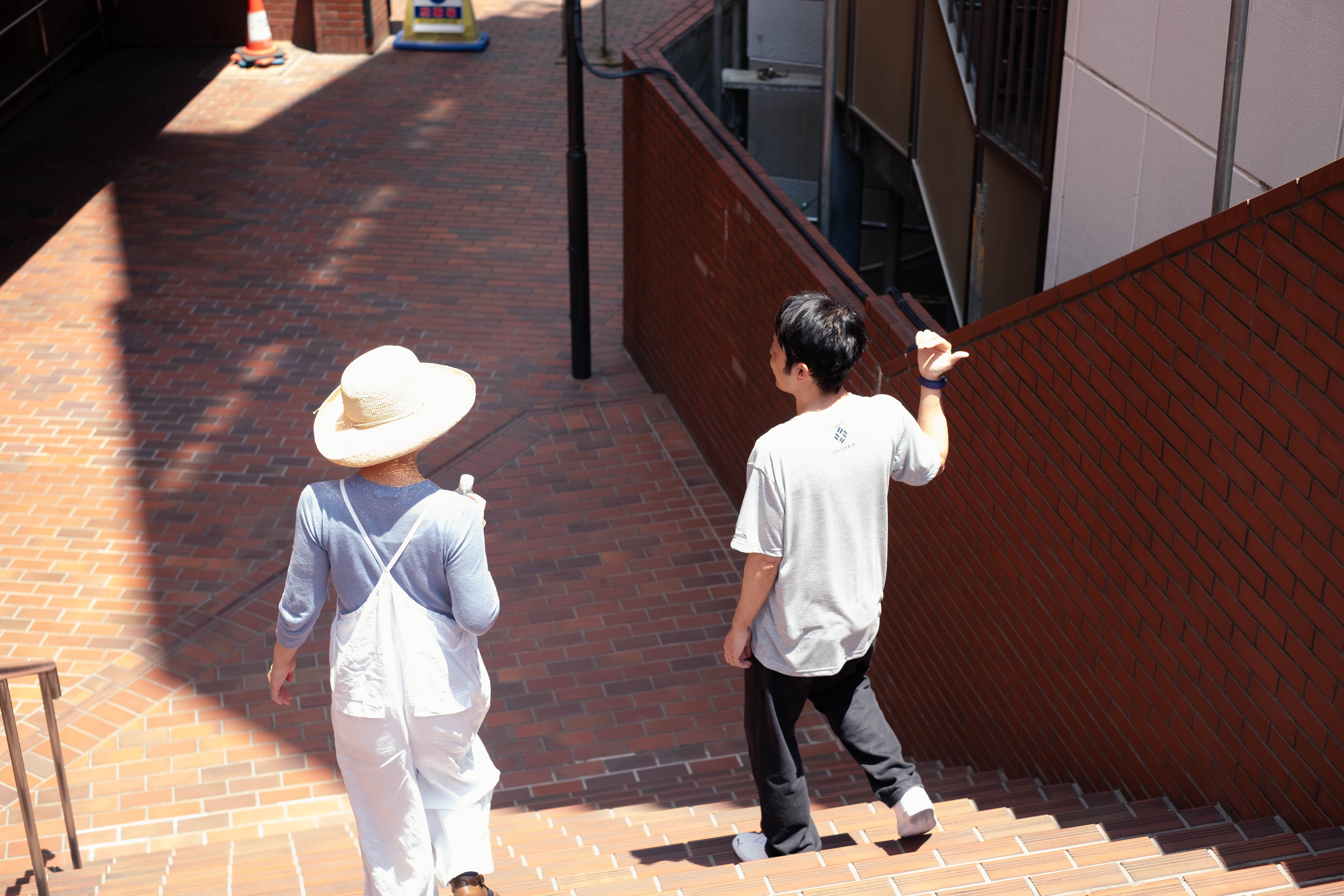

Mogicのかんがえをきく
Mogicは2024年で15周年を迎えました。社員が増え、組織ができ、クライアントも増え、サービスの認知度も上がりました。正社員だけでなく、インターン生やパートの皆さんも一緒に活躍してきました。
今回は、このシリーズの最終回です。「成長」というテーマで、いろいろな角度からお話を伺います。
最終回
成長をきく

会社に貢献できるよう成長しながら
個人としても納得できる成長をしてほしい


成長を振りかえる
最少の工数で軌道に乗せるにはどうしたらいいか
-
最終回、ちょっと緊張しますね。それではまずMogicのこれまでの成長をお聞きします。
最初は1人でコンサルティングされていたと聞いています。そのままでも良かったのに、なぜ人を増やしていこうと判断されたのでしょうか?
山根
株式会社として登記したので、どこかで他の人と一緒にやっていくと決めてました。ですけど、最初から数人で会社をスタートさせたら固定費が重くなるんです。人件費や家賃といったものです。それを賄いながら軌道にのせるにはたくさんの資金を最初にがんばって準備しないといけなくて。もう少しゆるっと考えながらやりたかったので一人で始めました。
幸いなことに友人や知人から仕事をもらい、数ヶ月でうまくいけそうだったのでチームを組んでいきました。成長していこう!というより、やれることをもっと増やしたいというぐらいの感覚でした。
-
起業されてから自分たちのブランドサービスを始めるのに1年ほどかかっています。自社でサービスを始めるにあたり、何が必要だったのでしょうか?
山根
結局、何もかも自分たちだけでサービスを作って、広げるって大変なんですよ(笑)。当たり前ですね。ビジネスになりそうな分野を選んで、企画を練って、人を集めて、資金をやりくりして、スケジュールを管理してから、ようやくリリース。
さらにそこからが本当の勝負です。サーバのランニングコストはかかるし、開発もプロモーションもマーケティングもしないといけないけど、時間もリソースもそこまで割けない。
なので、いつもどうすれば最少の工数で軌道に乗せられるかなと模索してたんですね。会社に所属してサービスを作るのとはぜんぜん違うので、自分たちのリソースを注意深くやりくりして次第にうまくなっていった気がします。
徐々に効果的なものだけを取捨選択できるようになった
-
実際にeラーニングシステムLearnOをリリースしてどうだったのでしょうか?
山根
他のインタビュー記事でも書いてありますが、さっぱりですね。本当に想定したワーストケースの一つ。うんともすんとも、なんの音沙汰もない。でもまあ、考えたり、動かなかったらどうにもならないじゃないですか。だから、なんでダメなんだろうなと自問自答して、仮説を立てて、施作をやって選択肢を狭めていきました。
BtoBビジネスでクラウドサービスを販売しようと検索すれば、ウェブに50個以上やるべきことが書いてあります。でもそれを真面目に全部やるとみんなが疲れちゃうだろうから、50個をどうやって5個に絞るか、または50個以外にもないのかと。格好良くいえば、手を動かす前に考え尽くす。本当はお金も、時間も、人もいないからですけど(笑)。
-
苦しい状況ですが、成長は実感されていたのでしょうか?
山根
問い合わせ数、契約数、そういう数字はまったく上向く気配がない。でも、考えられる方法をすべて洗い出して徐々に効果的なものだけに絞れてる感覚はありましたので、何かが積み上がってるんじゃないなと。eラーニングシステムLearnOをリリースする直前に今の執行役員の2人とチーフデザイナーが入社してくれてて、彼らとのコンビネーションも徐々にまとまっていきました。だから、成長って数字だけじゃ分からないんだなと思ってます。うまくいってるような実感が数字より先にくるんじゃないでしょうか。

執行役員の2人をマネジメントに巻き込む
-
サービスを出してから人が増えていきました。チームの成長という面はどうでしょうか?
山根
サービスを出すと、なぜか人が増えますね。あれもやらねば、これもやらねばって手数を増やしたくなるので人手が欲しくなりますから。ちょうどインターン生やパートさんの入社がはじまったのもその頃です。サービスをリリースするまでは僕が一番経験あったので引っ張っていったのですが、人が増えてきたら他の誰かがインターン生やパートさんをまとめないといけなくなります。
そういう流れで最初に執行役員の2人がマネジメントに巻き込まれていったんです。最初は全然できてませんでした。インターン生はアウトプットが不安定なんで管理したくなって分単位でスケジュールを作っちゃったり。そりゃ、無茶ですね。仕事を任せられなくて自分で抱えすぎちゃったり。マネジメント初心者あるあるです。
-
なかなかチームとしての成長も見えてこないんですね。
山根
思い返せば、サービスもうまくいってないし、人を集めてもうまくマネジメントできていない。客観的に見ればまったく成長できてないですね。だけど、不思議と積み上がってる感じがありました。大航海時代の冒険者が「一番辛いのは島があるかないか、確信が持てなかった時だ」と残してますが、僕らは「うーん、どうやら島はありそうだ」という感覚だったので前に進めたんでしょう。まあ、よく夜中まで話し込んでました。仕事は夕方の6時に切り上げて「人としてどう生きたいか」「幸せとは何か」って話してて、青春真っ只中みたい。たぶん1日3時間で2年ぐらいは話してたかな。
「話し合う」というスタンスが、Mogicの教育の土台になった
-
1日3時間、よくそんなに話すことがありますね。何か変化があったから続いたのでしょうか?
山根
記憶が曖昧ですが、その頃はメンバに仕事をお願いすると自分の予想とズレてたんですね。意図がうまく伝わってないなと。なぜだろうと思ったらどうもビジネスや人生に対する根本にズレがある。だからそこを埋めない限り、スムーズにいかないんじゃないかということです。
例えば「この分野に市場ありそうだから調べてみて」ってお願いして、2時間かけて網羅的なエクセルシートが出てきても困るんです。要は市場があるかないかが知りたいだけなので、2時間じゃなくて5分で分かるやり方も存在しうるしと。
つまり、最短距離でゴールする方法を自分なりに考えて、サクッと出して欲しいわけですから。そういう受け答えのズレをなくしておこうと最初にやりました。
-
話していくことで受け答えのズレがなくなったのでしょうか?
山根
話してたら、いつの間にかズレなくなってました。そうなると、細かな指示を出さなくても意図が伝わり、彼らのマネジメントや教育もうまくなりました。なぜそうなったのかは分からないのですが、「教える」というより「話し合う」というスタンスがMogicの教育の土台になった気がします。今でもそういう成長感をみんなが体で覚えているんでしょう。

相手が気がついてない部分に光を当てる
-
インターン生が入社して大きく成長するのはそういう環境があるからなんですね。
山根
昔は社員だけじゃなくて、パートさんやインターン生とも話してたので成長を実感できました。でもここ数年はほとんど接してないので大丈夫かなと思っていたのですが、それでもチームでグンと伸びていますから、組織として人を育てていくレベルが上がったのかな、手前味噌ですね(笑)。
話し合うことが個人の成長につながるなんて、普通思わないでしょう。日本だと私語厳禁という職場がありそうですし。しっかり、お互いに向き合って話していくクオリティってのが大事かな。
-
その話していくクオリティって何でしょうか?
山根
相手が気がついてない部分に光を当てる。曖昧だと感じたら言葉で詰めておく。どこかで聞いた話なら、なぜそう思ったかを聞いてみる。表面的な分析なら深さを聞いてみるとか。いろいろありますが、違和感を感じたらキチンとする習慣です。
-
ちなみに体感ではなく、数字としてサービスや組織の成長を実感されたのはいつごろでしょうか?
山根
2015年ぐらいからです。月間利用者数が5万人から10万になる頃、サービスをリリースして2年から3年ぐらいの間です。ちょうどオフィスも今の場所に移転してさらに人が増えて、対外的にもようやく発表できる数字になりました。チームの熟練度があがり、新しい授業支援システムPhollyをリリースしました。それ以降は、定期的に数字でも成長を確認できるようになりました。


成長のポイント(個人編)
上昇気流をそっとサポートする感じ
-
ここから一つずつ掘り下げて聞かせてください。会社において、個人の成長というものをどう考えられていますか?
山根
1日15時間起きてて、会社にいるのが8時間。なので会社でどう成長できるかは大事です。もちろん会社に貢献できるように成長してほしいですが、個人としても納得できる成長をしてほしいと思っています。会社という器が持続可能じゃないとみんなが食べていけませんからそこはキッチリ押さえつつ、人生において貴重な時間になれば一番ですね。
分かりやすいスキルは教えないんです。提案書の作り方、ソフトの使い方、プレゼンの仕方、コーチングのやり方、スケジュールの引き方とかは教えない。自分で調べて出来たものを見せてくれたら答えるねって感じです。それより一人の人間として特徴やクセをよく見てます。
表現が豊かでよくしゃべる、口数少ないけど毒舌、アジェンダの整理が丁寧、レイアウトと配色にこだわりあり、周囲のフォローうまい、とぼけた発言で癒し系とか。誰かに教わらなくてもできることって大事なんです。自覚なしにできてることを見つけたら、そこがまず本人の足場として最適なゾーンです。そこに絡むように仕事の内容を決めたり、メンバの編成を考えます。
そうすると、そもそもできてる部分に仕事があるのでうまく進みやすい。やりやすいから、結果が出やすい。一度成し遂げられたら次はもっとうまくやりたくなる。その上昇気流をそっとサポートする感じです。個人の成長に対するフォローであって、人生でも役立つ成長になりやすいのかなと。
これは僕だけじゃなくて、チーフと呼ばれるマネジメントは同じだと思います。一緒に仕事する人がどのような気持ちで、どんな行動してるかを理解する。気持ちを理解して仕事のプロセスを見て、変化を確認する。同じ部門のチーフだけじゃなく、他の部門のチーフも見ていて、それがトータルで一人の成長を実感するということですね。
みんなで異なる意見を集めて理解しようと努める
-
それだと成長を測るモノサシがいろんなチーフの感受性にかかっているようです。もしあるチーフが成長してるといって、別のチーフは成長していないと意見が割れたらどうされますか?
山根
それも一つの答えです。つまり、同じ部門なら仕事内容を評価できるけど、違う部門からみればコミュニケーションが弱いという可能性を示唆しています。みんなで異なる意見を集めて理解しようと努めます。もちろん、人間が人間を見るわけなので完全ではありませんが、できる限り理解しようとしてるんです。


成長のポイント(チーム編)
チームの成長は連動性の高さで見る
-
続いて2つ目の視点、チームの成長です。これは個人の成長と違うものでしょうか?
山根
チームの成長は、個人の成長と違います。そもそもチームは、何人かでお互いを支え合うものです。プロジェクトであれば、マネージャは実作業はしないけど、全体の流れをコントロールする。デザイナーやエンジニアはプログラミングするけど、全体の動きはそこまで見ていない。つまり、いろんな場面で欠けてるところを補うわけですから、メンバの連動性が最も大事です。ですから、チームの成長は連動性の高さで見ることになります。
いいバランスをとっていれば、楽しそうな雰囲気になるはず
-
これも評価が難しそうです。どうすると連動性が高いと判断できるのでしょうか?
山根
まずはお互いの強みや弱み、これまでの生き方、口グセや習慣をどのぐらい把握してるか。次に取り組む仕事にどのぐらい経験値をもっているか。最後に人と人の距離感をどのぐらいコントロールできているか、でしょうか。
連動性はアウトプットに関係してきます。だから、ちょっと様子を見るだけで分かります。例えば、プロジェクトのキックオフでどういう議事録を書いたか。ゴールイメージの明晰さ、リスクの見定め方、スケジュールの精度、作業のスピードとか。
あとはチームの雰囲気です。チームはお互いの助け合いですから。みんながうまくギブ&テイクできてれば、軽やかで楽しそうな雰囲気になるはずです。楽しそうだけどゆるんでるなら、スピードや精度が落ちますからそれも分かります。
弱っていれば助けてあげられるし、伸びてほしいと思えば突き放して様子を見る。チーム内でお互いの距離感を意図的にうまく保てるといいですね。



成長のポイント(会社編)
昨年と比べて新しくできるようになったことがどのくらいあるか
-
3つ目の視点は会社全体です。会社の成長をどう考えられているのでしょうか?
山根
もちろん分かりやすいのは数字です。売上高、費用、利益、利益率、資本回転率、クライアント数、商品単価、継続率などは把握しやすい。けど、あんまり信頼はしてないかな。さっきいったように数字より自分たちの実感がないとダメな気がしてます。
会社の数字は健康診断に似てますね。身長が伸びた、体重が増えた、血圧が高いっていわれるけど、理由はすぐに分からない。なぜ身長が伸び、なぜ体重が増えて、なぜ血圧が高いのか?相関関係があるのか、因果関係があるのかが分からない。どういうストーリーかを理解するのはまた別の仕事ですから。
だから数字になる前の状態で成長を確認することが多いですね。よくやるのは昨年と今年を比較して「新しくできるようになったリスト」を作ることです。しかもそれがどのぐらい連動性があったかを評価する。3つのチームが連動して新しいログ分析ツールができれば、翌年に新しい商品になるかもしれないですしね。
積み上げの方がみんなのメンタルを長期的に維持できるかな
-
新サービスのリリース、市場でのシェア、メディアでの露出などで成長を見ないのですか?
山根
対外的なものは優先度が低いです。不景気やパンデミックを思い出せば分かりますが、サービスは変わらなくても世の中が変われば評価ってすぐに変わります。だから、そこを指標にすると自分たちが積み上げるものをうまく感じられなくなりそうだから。
それより自分たちが新しくできるようになったことを確認します。プロセス重視だと失敗でも前に進んだからOKって積算できます。積み上げの方がみんなのメンタルを長期的に維持できるかと思ってます。
課題が終わったら次に進む、それだけ
-
積み上げることと関係するかもしれませんが、組織の成長はどうでしょうか?
山根
会社を作って3年目に部門を作り、5年目に経営会議を始めて、10年目に執行役員制度を作りました。計画的に作ったというより、一つ積み上がったら次に進むって感じでした。まず部門を作る。けど新しい部門はどうあるべきか腑に落ちてなかったので、ずっと話していました。するとどこかで自律的に動くようになるので一段落。
次の部門、次の部門と作って全部できたら、経営会議でまとめていく。経営会議でみんなの議論がこなれてきたら、マネジメントの階層を増やしていく。課題が終わったら次に進む。シンプルにそれだけです。
-
組織として成長できず、停滞することはなかったのでしょうか?一般的には人がたくさん辞めたり、部門同士が対立したり、活気がなかったりという話を聞きます。
山根
個人の事情がありますから、退職者は多少あります。ただ派閥ができたり、不満がたまって組織が停滞したりということはなかったですね。最初のころに入社した人はほとんど残ってます。昔はある人とある人がぶつかって揉めているぐらいはありましたが、部分的な感じです。美味しいスイーツを食べて、自分の裁量があって、フレックスや有給で好きなときに休みをとれて、仕事の締め切りに追われていない。となればそこまで雰囲気は悪くならないかな。


成長の試行錯誤
次につながるコメントだけすればいい
-
少し目線を変えさせてください。新しいことに挑戦するには試行錯誤が必要です。結果的にたくさん失敗が出ますが、そこは組織の成長にネガティブに影響しないのでしょうか?
山根
失敗が多くなると、怖くなって誰も手をあげなくなるということですよね。もし失敗が評価につながったり、怒られたりすればイヤになるでしょうが、もともと組織目標も個人目標もないですから、失敗してもどうにもならないんです。誰も失敗したらどうしようと思ってないし、ただ好きに自分の思ったことを口に出していい雰囲気はあります。
このあたりは子育てと似てるような。子どもは「テストで100点取れなかったから失敗だ」と言われたくないですよね。「絵がうまくないからもうちょっと描き足したら」「変な文章だから書き直しなさい」っていわれるのはつらいです。次はやりたくないです。
だから引き算するより、積み足していくんですね。「テスト70点、いいじゃん」「テスト50点、へー」「テスト30点、そういう日もあるよね」って何でもいいですから、次につながるコメントだけする。否定して後ろにひっぱられないように。試行錯誤しても前を向き続けられるように。それをいろいろやってるんでしょうね。

試行錯誤するコミュニケーションが組織として成長につながる
-
なるほど。では失敗してから対処というより、失敗ありきで前を向けるようにしているんですね。
山根
失敗が許されない職場だとします。失敗すると周囲に「あーあ」って言われます。それだと、社長や上司がいくら指示しても最低限のことしかしません。だって失敗すれば、周囲に刺されるわけですから。「言われたこと以外はやらない」「言われてもうまくかわす」「意見すると損だから言わない」って形に収斂します。そしたら、新しく挑戦するような成長は難しいんじゃないでしょうか。
逆に失敗を失敗としない職場ならどうでしょう。思ったことを口に出して試していく。自分の意見を聞いてもらえるから、少しずつ楽しさが出て自分の中で優先順位が上がってきたりする。やっぱり頼む側の納得感と受ける側の納得感がすり合わないとダメですね。試行錯誤するコミュニケーションが組織として成長につながるのかなと考えています。
全ての個人や部門を底上げしながら、連動性も上げていくことが重要
-
上司部下や同僚に関係なく、人と人とのコミュニケーションが組織の成長につながってるんですね。
山根
一人だけすごく成長しても、会社が成長するとは限らないんですよ。チームスポーツでいえば、一人のスーパースターだけだと勝ち続けられない。どんな人でも疲れてくるし、依存されすぎることでいつかボトルネックになる。一人のセールス担当がいくらたくさん契約をとってきても、デザイナーやエンジニアのキャパシティを超えてたら納品できないわけですから、意味ないんです。
さらにセールス部門が伸びて、ディレクター部門、デザイナー部門すべてのスキルが上昇したとしても部門間の連携がうまくなければ、高速回転する歯車に潤滑油がないみたいなもので早く摩耗するかもしれない。なので、すべての個人をゆっくり底上げしながら、横と横との連動性も上げていくことが大切です。全体的にコミュニケーションできるレベルが高くて、連動性が出てきて、会社として伸びていくのがいいです。

テクノロジーはまず使って、考えて、部門に組み込んでじっくりやる
-
次はIT企業なので、テクノロジーが会社の成長にどう影響しているか教えてください。
山根
最近だと生成AIという技術が出ました。これが会社の成長に関係しますか?という問いだとしますね。生成AIはプロンプトという命令をするときれいな文章や画像を作ってくれます。だけど現段階だと部分的な作業を圧縮してるだけです。プレスリリースやブログ、メールの文章を作ってくれたり、自分の文章を添削してくれますが、全体のフローに決定的な影響を与える訳ではない。
ですが産業革命時代の蒸気機関みたいなもので、やがて鉄道ができて、輸送業が発達して、小売業が栄えるといった具合に、テクノロジーは社会とのすり合わせで積み上がります。だからテクノロジーはまず試して、あれこれ考えて、部門に組み込んで、全体の流れに影響を及ぼすまでじっくりやっていくことになります。
-
テクノロジーで一気に飛躍ということにはならないと。
山根
それができるなら誰でも飛躍できますから、結局差はつかないんです。パッとテクノロジーに飛びついてもすぐに結果が出るわけじゃないから、しばらくすると多くが脱落していきます。あきらめずに地道にじっくり取り組んでいくことが一番重要ですね。研究したけど実にならないこともたくさんありますけど。
野球でいえばゼネラルマネージャみたいなもの
-
また違う角度から聞きます。ご自身は代表という立場から、メンバの成長にどういう影響を与えていると思われますか?
山根
僕自身は直接あんまり寄与してないと思います(笑)。プレイヤーとして活動しているわけじゃないので、全体のバランスを見ておかしなところを補正したり、付け加えたりしてるだけです。野球でいえばゼネラルマネージャみたいなもので、中長期的に必要なものを準備して、みんなが飛んだり跳ねたりできるフィールドを整備しています。
遠い未来に立って考えると、分かることがあるんです。「今は調子がいいけど、このままだと部門間の連動性が崩れるだろうな」「そろそろ違う角度の新サービスを出しておくと3年後に効いてくるかな」とか。ゆっくり、じんわりと影響する役割ですかね。


これからの成長を考える
ゆとりを保って年に何個か新しいことをやっていく成長がいい
-
最後になります。これからのMogicの成長をどう考えられていますか?
山根
みんながとりあえず何かやりたいと思える環境を続けたいですね。ちょうど15年目になり、人や業務も増えましたが、未だみんな新しいことへ挑戦できているので。市場シェアの急激な拡大、数倍の成長率といった目標を掲げるとメンバは大変じゃないですか。プレッシャーになって新しいことをやりにくくなるので、ゆとりを保って年に何個か新しいことをやっていく成長でいいかなと考えてます。20年目、30年目とそれが保てれば一番かな。
ですが、そうだ、勘違いされやすいので言っとかないといけない。
新しいことに挑戦できる環境を作るからといって、ゆとりを持たせすぎってことじゃないんです。面接で一番勘違いされやすいところなので強調しとかないと。トマトの苗でいえば、良かれと思って水や肥料をやりすぎるとひょろ長くなります。いつも根元に水や肥料があるから遠くまで根を張る必要がないんですね。だから水が足りなかったり、肥料が少なかったりして適切にハードな環境にする。そうするとしっかりと根をはり、葉っぱを目一杯伸ばして日差しを追いかけるようになる。
絶妙なバランスで高いレベルを求め続けるからこそ、成長できる
山根
会社も同じで、ゆとりあるハードさを求めて絶妙に続けたいですね。入社前にそのハードさが伝わってなさそうなのでそこは強調したい。はたらく人のインタビューを読んで楽しい雰囲気ばかり伝わっているみたいなので。
実はMogicは結構ハードなんだぞと。求められるクオリティは尋常じゃないし、いろんな幅のことをやらなきゃいけないし、ひたすら自分の意見は何かと聞かれるぞと。
目標やノルマがなく、ゆとりがあって楽しそうだから成長できるんじゃなくて、よく人をみて絶妙なバランスで高いレベルを求め続けるからこそ、成長できるんだってことを伝えたいです。
-
それは同感です!難易度の高いお題ばかりくるので、本当に大変なんです。私もそれをみなさまにお伝えしたい(笑)。ということで最終回も長くなりましたが、ありがとうございました!
山根
これまで本当におつかれさまでした!

